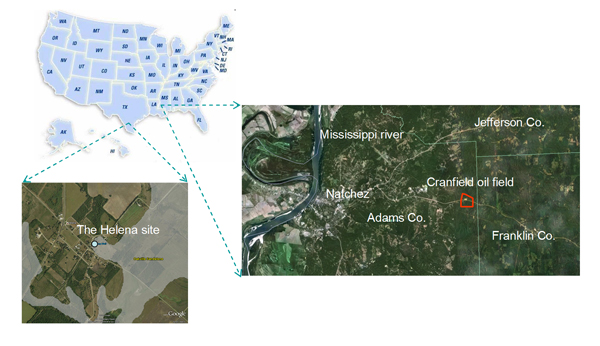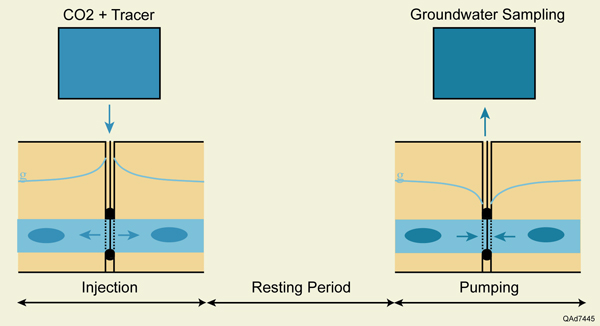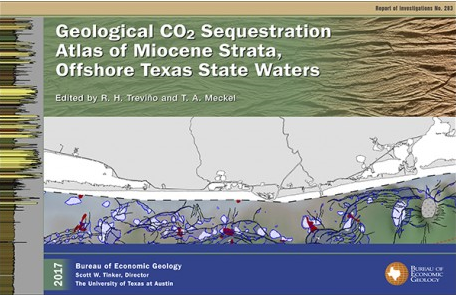2013–2010 Water Research Foundation (WaterRF) Project
Program Overview
The WaterRF project is a two year effort by the Bureau of Economic Geology to assess impacts of CO2 leakage on groundwater quality using field studies based on push-pull tests in shallow sedimentary aquifers at a geological carbon sequestration site in Cranfield Mississippi and at another site in the Texas Gulf Coast. This study is designed to overcome the lack of information on impacts of CO2 leakage on potable groundwater under controlled field conditions. Previous studies have focused on laboratory batch experiments and numerical modeling. Theoretical modeling studies are not reliable because of large uncertainties in model parameters such as reaction rate constants and reaction surface areas. The results of this study should provide valuable information for assessing potential groundwater contamination from CO2 leakage.

The WaterRF Project has three major objectives:
- Assess impacts of CO2 leakage using push-pull tests in the field.
- Conduct lab batch tests to determine impacts of CO2 on major and trace elements.
- Simulate test results to evaluate mechanisms dominating mobilization of elements.
- Evaluate diagnostic geochemical parameters of CO2 leakage into groundwater.
Results of this study will be extremely beneficial to the drinking water community by providing:
- Quantitative information on impacts of CO2 leakage on USDWs in typical Gulf Coast aquifer systems, where most geologic sequestration is likely to occur;
- Information on chemical parameters that can be monitored to fingerprint CO2 leakage in USDWs;
- Data to develop regulations related to geologic carbon storage relative to impacts on USDWs;
- Methodology for testing impacts of CO2 leakage on aquifers that integrates modeling and field testing;
- Evaluation of a reactive transport modeling package for predicting impacts of CO2 leakage in sedimentary aquifers; and
- Information on instrumentation for conducting push pull tests in aquifers.

This investigation is co-directed by Drs. Changbing Yang and Bridget Scanlon and is funded by the Water Research Foundation. Matching funds are provided by the Gulf Coast Carbon Center and the Jackson School of Geosciences. Utilities participating in the study include Mr. Broussard, Lafayette Utilities, Louisiana; Mr. Coleman, City of College Station, Texas; Mr. Hovsepian, City of Houston, Texas; Mr. Hunsinger, East Bay Municipal Utility District, CA; Ms. Owen, Tampa Bay Water, Florida.
The following provides background information and the tasks.
- Program Overview
- Background
- Gulf Coast System
- Regulatory Issues
- Significance to Water Utilities
- Research Approach
- Task 1.0: Laboratory Batch Experiments
- Task 2.0: Modeling Design of Field Push-Pull Tests
- Task 3.0: Conduction of Push-Pull Tests in the Field
- Task 4.0: Modeling of Field Experiments
- Task 5.0: Communication
- References
- Quarterly Reports, Publications, and Data



